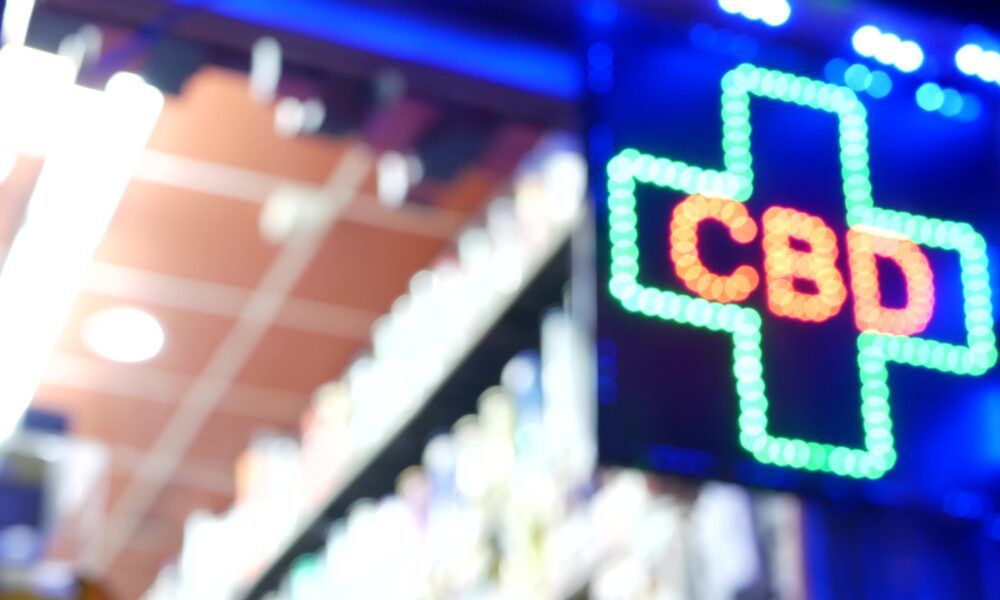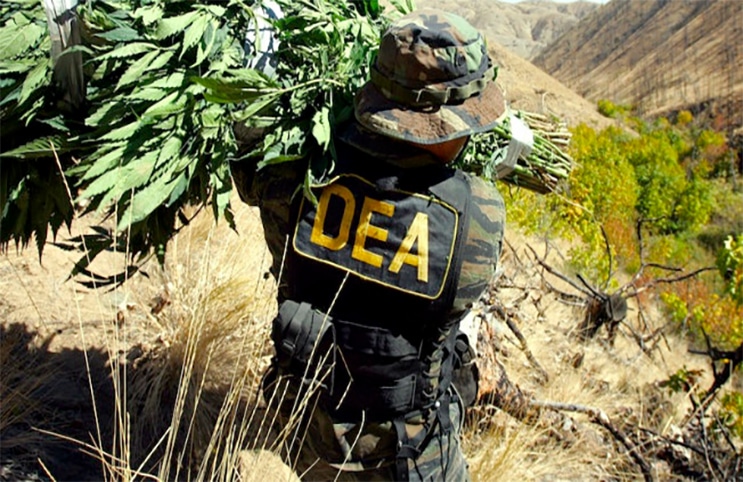Lies, Damned Lies, and “Loopholes
How Texas Lawmakers Created the Hemp Market They Now Want to Ban
“There are three kinds of lies: lies, damned lies, and statistics.”—Mark Twain
Following a playbook more than a century old, Texas Prohibitionists have pushed the false claim that hemp producers and retailers exploited a “loophole” to create a thriving cannabinoid market. They argue that lawmakers only ever intended to legalize agricultural hemp for grain and fiber—despite clear evidence to the contrary. This isn’t just misleading; it’s a calculated attempt by politicians like Lt. Gov. Dan Patrick, Sen. Charles Perry, and Chief Steve Dye to rewrite history, shift blame, and vilify Texas entrepreneurs.
These figures have a long history of twisting the truth, omitting inconvenient facts, and demonizing experts and advocates alike. Our policy has been to track their statements and fact-check them against reality, and in doing so, we’ve found a clear pattern of dishonesty. Sen. Charles Perry, in particular, has a habit of self-serving misinformation, making unfounded accusations in hearings while refusing to let witnesses answer his own questions. His rudeness, bad faith, and unchristian treatment of those who disagree with him betray a clear malice toward ordinary Texans whose lives, liberty, and livelihoods mean nothing to him if they fall on the wrong side of his rigid, dogmatic worldview. Nothing Perry says should be taken at face value—every claim must be scrutinized for errors, logical fallacies, and outright mendacity.
There Is No Loophole—The Law Says What It Says, and They Know It
For at least the past two years Perry’s perorations in virtually every hearing and public event when speaking on Delta 8 includes reference to “unscrupulous manufacturers exploiting a loophole in Texas Law allowing these addictive and dangerous products to be sold.” There’s a problem with that because it’s not a loophole.
The Texas Legislature, following the federal 2018 Farm Bill, explicitly legalized hemp products containing less than 0.3% delta-9 THC by dry weight. But they didn’t stop at simply allowing hemp stalks and seeds—they included terms like extracts, derivatives, cannabinoids, and isomers in the legal definition.
If lawmakers had only intended to legalize hemp for fiber and grain, why did they specifically name cannabinoids in the law? The Prohibitionists pushing the “loophole” argument want Texans to believe that legal businesses tricked the state into allowing THC products. But the truth is, the law was written to allow for hemp-derived cannabinoids, and lawmakers knew exactly what they were doing when they passed it.
The 2018 Farm Bill and Texas Hemp Law Expanded Hemp on Purpose
The original 2014 Farm Bill created a narrowly defined pilot program for “industrial hemp.” Congress could have kept this limited framework in 2018—but instead, they dramatically expanded it. Not only did they legalize hemp outright, but they also dropped the “industrial” qualifier entirely.
Texas lawmakers followed suit with House Bill 1325 in 2019, fully aware that the national hemp market was rapidly expanding into cannabinoids like CBD and other THC variants. If Patrick, Perry, and their allies now claim they never intended for consumable hemp products to be legal, they either weren’t paying attention (unlikely) or they’re deliberately misrepresenting the legislative history (far more likely).
The Real “Loophole” Is Their Own Failure to Clarify
If Prohibitionists are so outraged about the growth of the hemp market, they should take their complaints to Dan Patrick and Charles Perry, the very people who had multiple chances to clarify the law but chose not to. Instead of implementing regulations early on, they let the industry develop for years before suddenly deciding it was a problem.
If there was any “loophole,” it was one they created by not setting clear parameters from the start. Now, instead of taking responsibility, they want to paint retailers and producers as bad actors to cover up their own negligence.
Prohibitionists Distort, Deceive, and Disgrace Themselves to Justify a Ban
Rather than focusing on legitimate regulatory improvements, Prohibitionists like Chief Steve Dye have resorted to outright misinformation. Dye and others have made scurrilous accusations against hemp retailers, suggesting—without evidence—that they’re knowingly selling dangerous or illegal products to consumers.
This is a classic moral panic playbook:
• Cherry-pick a few bad actors and pretend they represent the entire industry.
• Mislead the public by suggesting all hemp-derived products are the same as illegal marijuana.
• Use law enforcement disinformation to push a political agenda.
Chief Dye’s public statements show a consistent pattern of fear-mongering, deliberate omissions, and outright falsehoods. He has been a mouthpiece for prohibitionist propaganda, making claims that contradict both regulatory evidence and industry data. His statements should never be assumed to be factual and must always be examined for dishonesty.
The vast majority of hemp businesses in Texas operate within the law and have been calling for clear, fair regulations for years. If Prohibitionists truly cared about public safety, they’d work with the industry to improve oversight—not weaponize misinformation to push for a total ban.
The Baselice poll delivers a clear message: Texans, including a strong majority of Republicans, support legal, regulated access to THC. Conducted among 600 likely voters, the survey found that 68% favor keeping hemp-derived THC legal with strict regulations, while only 20% support an outright ban. Even among Republicans, support for legality outpaces prohibition by a two-to-one margin, exposing the disconnect between prohibitionist lawmakers like Charles Perry and their own voter base. The results cut through the moral panic and fear-mongering, showing that Texans aren’t buying the manufactured crisis Perry and his allies are pushing. Instead, they recognize the reality—responsible adults should have access to legal THC, and the state’s focus should be on smart regulation, not reactionary bans.

When confronted with hard data that contradicts his narrative, Senator Charles Perry doesn’t debate—he attacks. Upon hearing that a Baselice poll showed 68% of Republicans support some form of THC legalization, Perry turned red-faced and sputtered, dismissing the respected pollster as a “bottom dweller.” He didn’t refute the numbers. He didn’t challenge the methodology. He simply lashed out, as if reality itself were an insult. This is how Perry manages disagreement: not with facts, not with reason, but with sheer force of will, belittling the source and attempting to intimidate the messenger. For Perry, to be proven wrong isn’t just inconvenient—it’s unacceptable. And so, rather than engaging in an honest discussion, he bullies, dodges, and ultimately denies, hoping that if he shouts loudly enough, the truth will simply go away.
The “Loophole” Perry Wants Isn’t the One He Claims
The “loophole” Perry is so desperate to close isn’t the one that made Delta-8 THC legal—it’s the one that prevents him from criminalizing it by legislative fiat. Delta-8 remains legal in Texas due to a court order, but Perry and his allies are attempting to override this by distorting the definition of “synthetic.”
They seek to lump a well-understood, safe chemical process called isomerization—the conversion of one natural cannabinoid into another—into the same category as dangerous, lab-created substances like K2 and Spice. This isn’t just misleading; it’s deliberate. By twisting scientific terminology to fit his prohibitionist agenda, Perry hopes to conjure a public health crisis where none exists. His goal is clear: to weaponize legal definitions, equating a regulated cannabinoid with the reckless chaos of street drugs to justify an unnecessary, fear-driven ban.
Perry, Patrick, and Dye’s Political Game Is Transparent
One of the biggest enablers of this mess is Sen. Charles Perry, a longtime Prohibitionist who deliberately let regulatory uncertainty fester—only to later use it as an excuse for a crackdown. Instead of helping establish clear guidelines for the industry, Perry sat back and waited for problems to arise, knowing he could later use them as ammunition to push prohibition.
Lt. Gov. Dan Patrick has been complicit in this strategy from the beginning. He has consistently blocked even the most modest cannabis reform efforts, from medical marijuana expansion to regulatory improvements for hemp. His sudden concern over hemp-derived THC isn’t about protecting Texans—it’s about pandering to the Prohibitionist base and consolidating power.
And then there’s Chief Steve Dye, who has made it his mission to spread law enforcement disinformation about the industry. Rather than basing his claims on actual evidence, Dye has relied on fear tactics and demonstrably false statements, often demonizing both industry experts and consumer advocates. His refusal to engage in honest debate—combined with his repeated omission of facts—shows that his goal is not public safety but rather to serve the Prohibitionist agenda.
The Bottom Line
The “loophole” argument is nothing more than a convenient excuse for Prohibitionists like Patrick, Perry, and Dye to cover up their own failure to regulate responsibly. The Texas hemp industry followed the law as written, and the same lawmakers who now complain about hemp-derived THC were the ones who wrote those laws in the first place.
Texas retailers, farmers, and consumers deserve better than political games and misinformation. If lawmakers want to change the rules, they should do so through honest debate—not by demonizing legal businesses and rewriting history.
Texans must not allow prohibitionist politicians like Dan Patrick, Charles Perry, and Steve Dye to use bad-faith narratives to shut down an industry that has operated in good faith. The Texas hemp industry is here to stay, and we must not let these politicians weaponize disinformation to take us backward.

















































